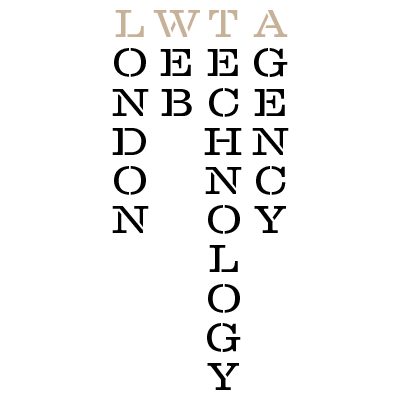Does Longer Content Really Rank Better?
The Myth of the 2,000-Word Magic Number
At some point in the last decade, a rumour started doing the rounds in SEO circles: if your blog post was under 2,000 words, you might as well not bother. Longer content, they said, ranked better. Period. So, off we went, keyboards clacking, stuffing blog posts with every known synonym for “how to boil an egg.”
That belief wasn’t entirely unfounded. Backlinko, for instance, published a well-known study that found the average word count of top-ranking content on Google hovered around 1,890 words. That number took off like a meme in a family WhatsApp group. Other studies joined the parade. SEMrush, Ahrefs, and Moz threw in stats, and next thing you know, everyone was trying to write the next War and Peace on “how to descale your kettle.”
But there’s a catch. Those studies showed correlation, not causation. Yes, top-ranking content was long. But not because it was long. It was also in-depth, useful, well-structured, and comprehensive. The length was more a side-effect than a magic spell.
What Google Actually Says About Content Length
Google’s official position on content length has always been frustratingly vague. When asked, they usually respond with something like, “There is no minimum or recommended word count.” Which is about as helpful as a chocolate teapot.
John Mueller, one of Google’s more outspoken Search Advocates, has said on multiple occasions that word count is not a ranking factor. Relevance is. Helpfulness is. Whether your content meets the needs of the searcher—that’s what counts.
So, what’s the difference between depth and length? Length is how many words you write. Depth is how thoroughly you answer the question. You could write 3,000 words about how to clean a mirror, but if your advice boils down to “use a cloth and some vinegar,” you’ve just wasted everyone’s time.
Search intent matters more than your word count. If the user just wants a yes-or-no answer, giving them a four-page essay won’t win you any SEO medals.
When Longer Content Works Wonders
That said, long content can work. In fact, in the right circumstances, it works brilliantly. Think about ultimate guides, technical walk-throughs, case studies, or deeply researched opinion pieces. These formats are supposed to be long. They signal authority. They give readers everything they need in one place, like a digital Swiss army knife.
Sites like HubSpot, Neil Patel, and Ahrefs have turned skyscraper content into an art form. They don’t just write long for the sake of it—they structure it well, break it up with headers, visuals, tables of contents, and give people reasons to stick around.
Google notices that. Long content that keeps people on the page, gets shared, attracts backlinks, and answers related questions in a single go? That ticks a lot of boxes in the search algorithm’s brain.
But it only works if the writing is engaging and useful. Droning on for 2,000 words without a point is like forcing someone to sit through your holiday slideshow without snacks.
When Shorter Content Steals the Show
On the flip side, short content can absolutely dominate the rankings—if it matches intent.
Let’s say someone Googles “What’s the capital of Peru?” The correct answer is “Lima,” not a 1,500-word breakdown of Peru’s history, political structure, and football team. If you waffle, you’re out.
Google’s algorithm is obsessed with satisfying user intent fast, especially on mobile. That’s why featured snippets and answer boxes exist. If your content answers the question clearly, concisely, and early, you’re more likely to be picked up for those juicy top-of-page snippets.
Short content also works brilliantly for FAQs, local service pages, product descriptions, and how-tos where brevity is appreciated. Some people just want to know how to descale their kettle and get on with their day. You don’t need a five-chapter thesis for that.
So, What’s the Sweet Spot?
Here’s the short answer: there is no magic number. There’s only the right length for the right topic and intent.
If you’re writing a how-to guide, maybe 800 to 1,200 words is the sweet spot. For an in-depth comparison of five CRM platforms, 2,000 words might be perfectly reasonable. For a local business landing page? Keep it focused and punchy.
Instead of aiming for a specific count, ask yourself:
- What does the reader want to know?
- What questions might they have next?
- Can I answer all that clearly and simply?
Tools like Surfer SEO, Clearscope, or Frase can help you gauge what your competitors are doing, spot content gaps, and make sure you’re not missing the mark.
But don’t write just to fill space. Write to solve problems. Write to be useful. And stop when you’re done.
Final Word: It’s Not About the Word Count
At the end of the day, Google’s not your word count teacher. It’s not scanning your content with a red pen and sighing at your paragraph lengths. It’s trying to figure out if your page gives searchers what they came for.
So if you’re writing a blog post and thinking, “Should I add another 500 words?” ask yourself: will those words add value? Or are you just padding like it’s a GCSE history essay?
Useful content wins. That might mean 300 words. It might mean 3,000. But don’t fall for the myth that longer is always better. Google isn’t counting your words—it’s counting your answers.
And no one ever bookmarked a blog post because it was just long enough.

